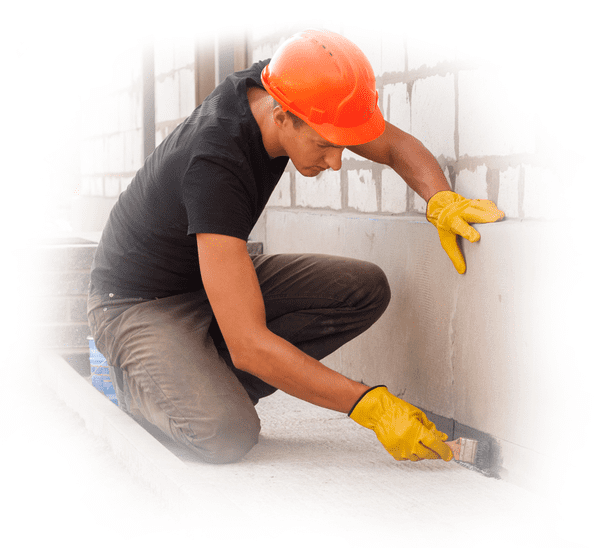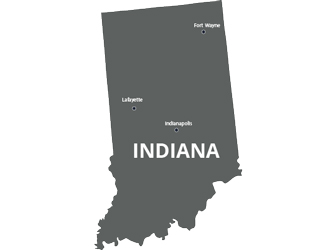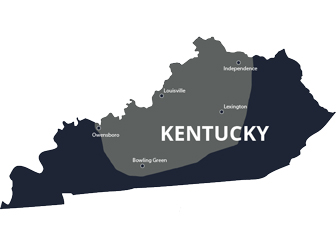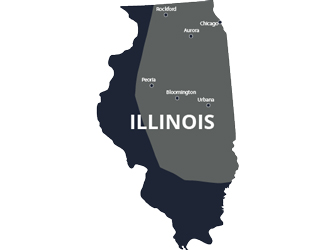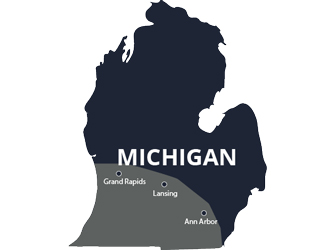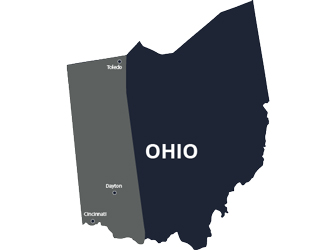Originally posted 4/22/19, updated 9/17/21
There are parts of the U.S. where the weather stays relatively consistent year round. The Midwest is not one of them. We cope with subzero temperatures in the winter and suffer through sweltering 90°+ days in the summer.
For most of us, extreme events like tornadoes and flooding are part of everyday life. We deal with them as they happen, and when possible, plan accordingly. Humans are adaptable, and we learn to roll with Mother Nature’s punches.
But these extremes can take a major toll on your foundation’s integrity and stability. At Acculevel, we know how vulnerable your foundation can be to water intrusion. We’ve repaired foundations and waterproofed homes for more than 30,000 homeowners since we opened our doors in 1996. As a family-owned and operated company, we meet our customers where they live, treat their homes like our own and provide a 5 star customer service experience.
In this article, we’re going to talk about how mold, mildew, bacteria, and other health threats spread into our homes. We’ll also discuss the best ways to prevent this from happening, and address some popular DIY solutions that are not good for your home.
Mold is Everywhere and Can Thrive Anywhere
Mold is a type of plant life, and it’s extremely diverse and hardy. Spores from mold can be carried through the air, tracked in on your shoes, or arrive with your teenager’s nasty gym clothes which are currently shoved under the bed instead of placed in the laundry basket. Germs and other biological growth are the same way- they’re ubiquitous and unavoidable.
All it takes to feed these nasty little life forms is a source of food and moisture. Food sources are easy to find in your home: mold can digest dust, shed skin cells, any natural or organic matter that has simple starches or sugars. Some bacteria can even photosynthesize like house plants. So there’s really no way to eliminate their food source, unless you can manage a 100% sterile environment.
That leaves us with the other option: controlling the moisture in your home.
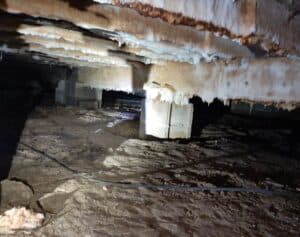
This photo was taken by an Acculevel project advisor during a free estimate appointment. The wooden joists and beams in this crawl space are covered in mold.
How Do You Control Moisture in Your Home?
There are several steps you can take to control the moisture getting into your home. If you don’t have actual water seeping in, a dehumidifier may be enough to stop the biological growth from forming. A whole-home dehumidifier is a great investment to make, because it also addresses bacteria, viruses, and other organisms that pollute your air.
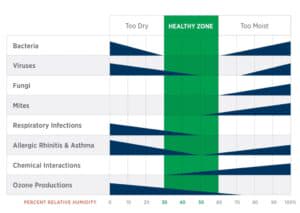
This graphic is from a study developed by ASHRAE (American Society of Heating, Refrigerating and Air-Conditioning Engineers)
You can see from the chart above, the ideal humidity level in your home should be 50%. This is when the air inside your home is the healthiest, and least likely to promote harmful organisms from developing.
If you do have water intrusion in your basement or crawl space, you will need more than just a dehumidifier. You will also need waterproofing, which is a system for managing and controlling the water that gets into and through your foundation. The best water drainage system for your home is largely dependent on what type of floor you have in your basement or crawl space.
We also recommend a good quality sump pump with a battery back-up. If you live in the Midwest, you know the number one cause of power outages is thunderstorms. You do not want your sump pump to lose power when it’s pouring down rain! Including a battery back-up in your waterproofing system is the best way to avoid being in that soggy situation.
How Can You Ensure Your Air is Clean, Dry, and Mold-free?
The best possible way to prevent biological growth and improve your air quality is with encapsulation. Encapsulation is the process of lining walls (and floor in a crawl space) with a specialized material. At Acculevel, we use a liner made of woven resin polyethylene. This liner is the strongest and most puncture-resistant material available to contractors. It is also inorganic, which means it will not support any biological growth.
We recommend encapsulation for all of our customers, but it is especially valuable to you if:
- You have a brick or stone foundation; these are more susceptible to water intrusion than concrete.
- Water intrusion is a frequent issue for you. This is common in areas with a high water table (you live near a body of water: lake, river, creek, etc).
- You plan to finish your basement. No one wants to invest time and money into building out a living area, only to rip it all out when the insulation or drywall gets damp and molds.
- Someone in your household has strong allergies, asthma, a compromised immune system, a chronic respiratory condition, or similar conditions that reduce their immunity to viruses and bacteria.
If you would like to know more about the encapsulation material that we use, or the installation process, this article has a detailed explanation of our white cap material and additional resources.
Want to Know More about Encapsulating Your Home?
If you live in our service area, call Acculevel at 866-669-3349 or complete our online form. We’ll schedule an appointment for you with one of our knowledgeable and experienced project advisors. They will sit down with you, discuss your concerns and needs, evaluate your home, then help you formulate a plan to preserve and protect your home for years to come.
If you don’t live in Indiana or the surrounding areas, we suggest you get recommendations from friends or neighbors who have similar work done on their homes. You can also check with your HOA, the realtor who sold your home, or use an online service like Home Advisor. We have developed a guide to Questions You Should Ask a Contractor, which explains not only what to ask- but which answers you need to be extra wary of. We don’t want anyone to be taken advantage of, or deliberately misled by, con artists impersonating reputable contractors. You should always “vet” a contractor through the Better Business Bureau, to be sure a company is insured and accredited.














